Ndidi Okezie has done that rare thing and crossed the divide between teaching and youth work. Always the problem-solver, she’s now launching a cross-sector leadership programme
If you’re a real education nerd, you might recognise Ndidi Okezie’s dulcet tones – and infectious giggle – from the Are You Convinced? podcast. The general premise is that Okezie and Teacher Tapp’s Laura McInerney (former Schools Week editor) battle it out with each other and guest speakers to convince one another of a particular approach for students, listening to all sides. At the end, the speakers confess whether they are convinced – or not.
Okezie, a former Teach Firster and now chief executive of UK Youth, tells me that last month she lost a debate she really cared about. The topic was “teachers and youth workers should be trained together” and the “whole thing became about fitting it into initial teacher training”, says Okezie, rolling her eyes. “I should have said that it should be part of CPD!”
But one moment was a win for Okezie: a guest looked up the definition of a youth worker, and realised it fitted their vision for schools. “I said ‘great, we can stop talking now.’”
As a youth work charity boss and former school teacher, Okezie straddles several worlds, just as her podcast aims to. And she is bursting with frustration – the good, high-energy kind – that schools and youth workers (and other services) are not yet working much more closely together. If young people were genuinely the focus, she says, then schools would prioritise this goal too.
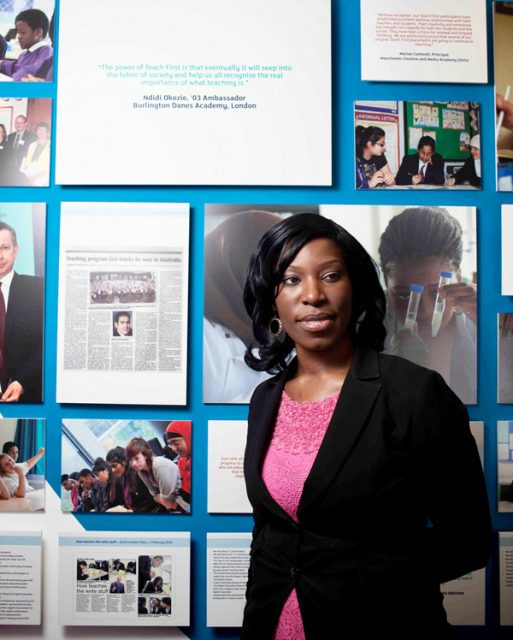
“Before I came into this role, even when I thought I was thinking system wide, I was probably still thinking about it from a school lens, not a young person lens,” she says.
Okezie has held national roles at publishing firm Pearson and Teach First prior to her move in January 2020 to UK Youth, an organisation that supports the youth sector. “With Teach First, it was teachers, workload, development; with Pearson, it was reaching teachers and schools. In all of these things it never occurred to me think properly beyond the teacher.”
If you are only thinking about education, you are not thinking about the child, you are thinking about the profession
Instead, she says, “if you are only thinking about solving this problem through education, you are not thinking about the child, you are thinking about the profession. I am not led by the profession now, I am thinking about the young person.”
When teachers – including podcasters! – cast doubt on training with youth workers or social workers, it’s clear to Okezie that “the only reason you think that is because you haven’t sat in those other professions.”
“There are people,” she continues, “in these other professions who would transform the experience of young people, and teachers, if only they were allowed into schools.”
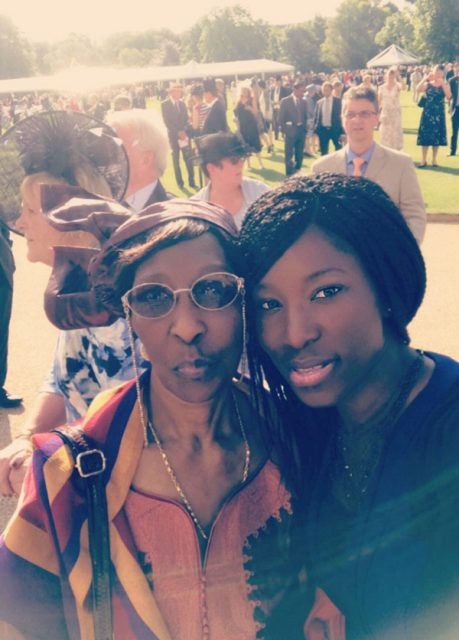
Okezie’s message is the culmination of a journey, started by breaking free of the categories her supportive, no-nonsense mother set out. “Very typically in west African homes, there are a very limited number of jobs you’re allowed to do: lawyer, doctor or accountant,” Okezie smiles.
“My mum was very strict, very protective. She used to call the house 20 minutes after school had finished to check I hadn’t taken a detour.”
But Okezie decided against the suggested professions. She started a computer science course at university (but “hated every minute of it”). Eventually, she was allowed to change to psychology “because it still had BSc after it,” she grins.
The initial plan was to become a clinical psychologist, but at that time two years of teaching was needed. “That was enough to make me say, no, I’m not going to do that!” Education had not always been a positive experience for Okezie.
One teacher had told her “children like her” didn’t go to university, a message that resurfaced when she was hugely put off by the largely white, privileged atmospheres of top universities outside London, such as Warwick. Instead, she chose Brunel in west London where she felt safer.
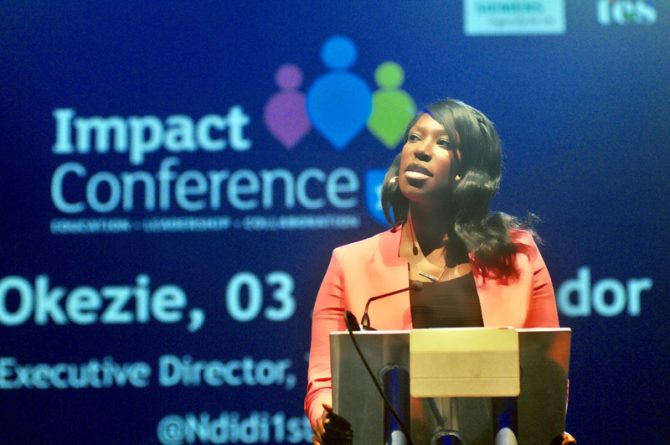
But after some months working in the City, life felt pointless, and she googled a combination of words while at work – ‘innovation, young people, purpose, business’ – and Teach First popped up. Three weeks later, she was training with them. (Her mum, at this point, began referring to her as a ‘lecturer’).
“I always laugh because the thing that made me hesitate was the teaching part,” she says. “I thought, ‘God forbid, I am not going to be a teacher’, but I thought, ‘Come on, Ndidi, this resonates, suck it up.’”
What changed? “I fell in love with it. I will say it now, and it has more credibility because I’ve done other things too, it is the most rewarding, humbling, privileged thing that people can do.” She pauses. “I often have interesting conversations with teachers: do we teach children, or do we teach our subject? It was never about the subject for me, it was about the children.”
She started off at Bexley Business Academy in south London, and in 2006 moved to Burlington Danes Academy under Dame Sally Coates. “Just being under Sally…” Okezie shakes her head. “Until today, that’s the most formative leadership experience I’ve had.” Seven years later she was still there, now assistant.
But, as she puts it, the “idea of making change beyond one school” refused to budge. “I would still deal with parents in my office crying because they hadn’t got a place and had to go to another school. It still felt like a lottery. It shouldn’t have mattered if you didn’t get into this one. We don’t need more proof points in the system, we need the system to shift.”
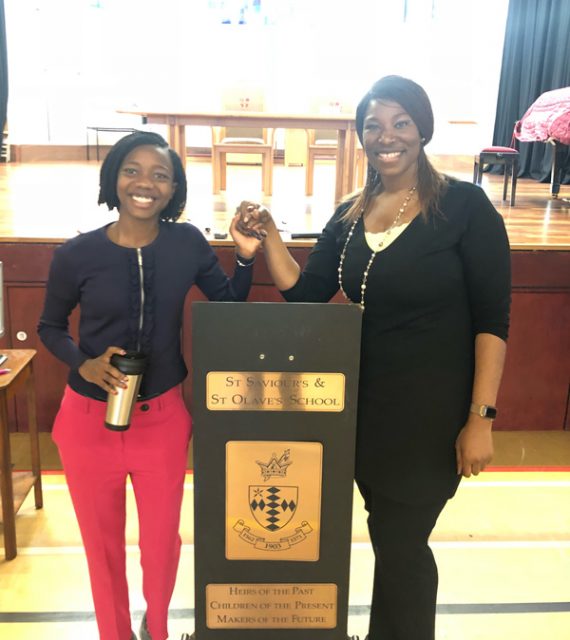
So she asked to have a coffee with Teach First’s founder Brett Wigdortz, who promptly employed her as a consultant and then as executive director for regions, helping the organisation build networks across England. After almost seven years, she then joined Pearson as director for digital and customer voice strategy.
Ever frank about her experiences, Okezie is clear she learnt a great deal but “had arrived with pen and paper out, ready to learn from the big people in the corporate world, but it was nonsense, honestly. It made me realise everything I’d done up to that point was very valuable.”
Instead, it was her new role at UK Youth which “set the new standard” for challenge. There were a lot of misconceptions, says Okezie. The youth work sector has some “archaic ideas” of what schools are, for instance. “You can’t tell me as a teacher that I don’t really care or know about the kids!” she says in mock outrage.
But she realised the youth sector prioritised young people’s agency in a way schools do not. “We’ve given bringing young people into the conversation a lot of lip service. I just don’t think schools think about youth voice in that way. I’m not convinced they do it as well.”
She says some schools are trying, such as Totteridge Academy in north London, where “the students are humanised, relationships are at the core”. She praises Reach Academy Feltham in west London for “meeting with every family” before they join. “It was so radical at the time, but this should be normal.”
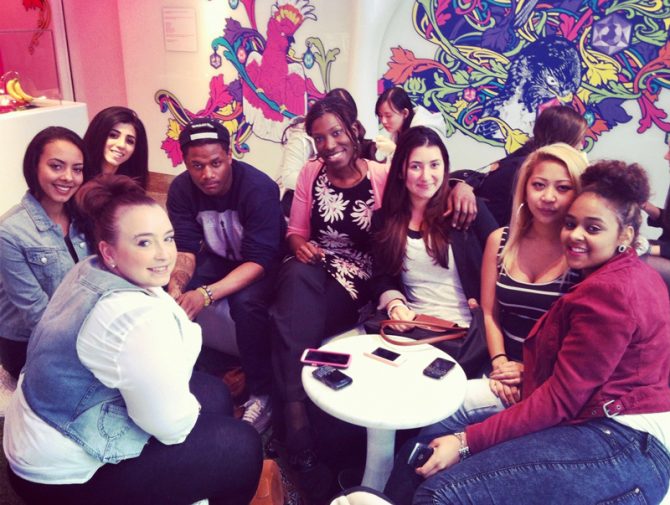
Now, however, Okezie is putting her money where her mouth is. UK Youth is piloting a “cross-sector leadership programme” with the Reach Foundation, Dixons Academies Trust and social worker programme Frontline.
Ed Vainker, chief executive at Reach, wanted a training programme for senior leaders with a “module” in social or youth work, but Okezie pressed for something bigger. “I said, if we’re going to do it, let’s do it properly. And if I hadn’t had this experience outside schools, I wouldn’t have said that.”
If I’d understood youth work like I do now, I would have been a different teacher
Twenty school leaders, 20 social workers and 20 youth workers will train together in local clusters and visit each other’s settings to improve the whole system. Accreditation is not decided yet, but it’s a start. The pilot kicks off in January, and each year Okezie wants another relevant profession to join, such as police and health.
But, as the podcast debate shows, there’s a long way to go yet. “This is more of a gamechanging opportunity for teachers than many of the things we think would change the game for teachers,” says Okezie urgently. She leans in. “If I had understood youth work the way I understand it now, I would have done my time as a teacher very differently.”














A great article for us all to understand the pupil’s needs. Youth practitioners have the ability to unpick what is needed to help YP make progress